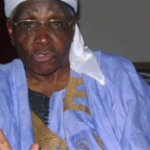As the African continent continues to grapple with various health challenges, Dr Chrys Promesse Kaniki, the Senior Technical Officer for Strategic Programmes at the Africa Centre for Disease Control and Prevention (CDC), has emphasised the need for youth to play leadership roles in shaping a healthier continent.
He spoke with journalists ahead of the Africa CDC Youth Pre-Conference (YPC) 2023 on the margins of the third Annual International Conference on Public Health in Africa in Lusaka, Zambia, where 250 young African professionals in public health will be discussing youth leadership in ensuring a healthier and safer Africa between November 25 and 26.
Dr Kaniki, who doubles as the Secretariat Lead of the YPC, noted that the conference seeks to amplify youth voices and leadership in Africa’s public health sector.
“The Africa CDC Youth Pre-conference 2023, themed “Youth Leadership for a Safer and Healthier Africa,” aims to provide a continental dialogue and resolution platform. Unlike traditional engagement, the focus is on leadership, where youth voices are not only heard but actively contribute to decision-making,” he explained.
He also highlighted the YPC’s goal of creating a continuous engagement process, ensuring discussions translate into actionable solutions implemented at the community level.
The Africa CDC Senior Technical Officer stressed that youth, constituting 60-65 per cent of the African population, must transition from being perceived as beneficiaries to actively participating in leadership roles, adding that traditional approaches had seen agendas postponed due to a lack of inclusion and ownership by the youth.
“For the past 20-30 years, all the big agendas we have had, we have not always achieved them at the set date. We are talking now about Agenda 2030, but before it, 15 years ago we were talking about Agenda 2015, and 15 years before that, we were talking about Agenda 2000. But we kept pushing after every 15 years. At the African Union, we are now talking about the Agenda 2063, which is looking at the 100 years of the AU.
“It is good to have these agendas, but most of these agendas, for me, have been failing, and one of the reasons from my understanding is not that the agendas were not well imagined or that the implementation was poor, but the main part of it is because those who have been looked at as beneficiaries, who were supposed to be part of the whole process, have been left out. To rectify this, young people should be involved from the inception, ensuring they contribute, understand, and take ownership of initiatives,” he said.
Addressing the Initiative Gap, Dr. Kaniki stated that young leaders could bridge gaps in research, innovation, policy design, and more, adding that by integrating their perspective into problem-solving and decision-making processes, youth leadership becomes integral to solving Africa’s challenges. He, therefore, urged a shift from merely engaging young people to giving them leadership roles, ensuring the innovative solutions they bring are part of the decision-making process.
Looking ahead, Dr. Kaniki emphasized the need for youth talent in various areas, from community health workers to digital health and mental health, saying that the future involves capacitating young people and integrating their innovative solutions into the continent’s health landscape.
“Africa CDC has taken the bold decision of engaging young people on the continent. At Africa CDC and the division of the Director-General, we have understood that if we want to succeed with all our initiatives in public health for the continent, we need to include young people at the centre of our actions.
“Young people make up 60 per cent of the African population. When you look at every community of health workers, we have this huge project of supporting the continent with two million community health workers in the next two years. The age group of community health workers is between 18 and 35. That is where you have young people. Clearly, if Africa CDC wants to succeed in this project, we have to work with young people, capacitate them, train them and make sure they are a support system,” he said.
WATCH TOP VIDEOS FROM NIGERIAN TRIBUNE TV
- Let’s Talk About SELF-AWARENESS
- Is Your Confidence Mistaken for Pride? Let’s talk about it
- Is Etiquette About Perfection…Or Just Not Being Rude?
- Top Psychologist Reveal 3 Signs You’re Struggling With Imposter Syndrome
- Do You Pick Up Work-Related Calls at Midnight or Never? Let’s Talk About Boundaries






